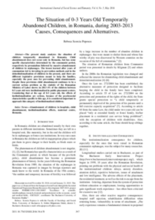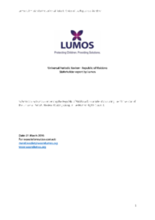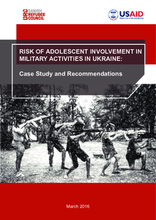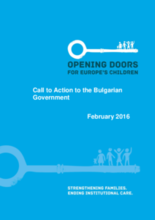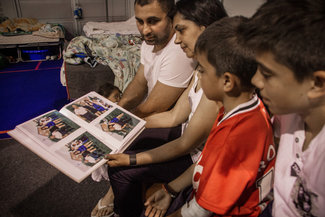

Displaying 761 - 770 of 1060
On 10-11 May 2016 in Vienna, Austria, Child Protection Hub for South East Europe organises a regional Policy Forum on Decentralisation of Social Services.
This study used a secondary analysis of data from 2003 to 2013 to better understand the situation of children temporarily abandoned in Romania. It looked at data for children aged 0-3 years who were abandoned in different hospital units or institutionalized in public orphanages or public and private foster care institutions.
After the fall of the Soviet Union, the world was shocked to learn that countless children were being held in unsanitary and hazardous conditions within Romanian orphanages. This video tells of Izidor Ruckel’s experience while growing up in a Romanian orphanage, along with his eventual immigration to the U.S. where he was adopted by a family from California.
Under the project United Voices for Children, financed by the German Federal Ministry for Economic Cooperatio
Izidor Ruckel was one of thousands of children found living in terrible conditions in Romanian orphanages after the collapse of the Communist government. This short video from BBC News shares his story.
In this report, Lumos welcomes actions taken by the Republic of Moldova to prevent child abuse and exploitation during the period between 2011-2015. Lumos further notes c
In this video from the Brainwaves Video Anthology, Dr. Charles Nelson shares some findings from his research on the impacts of deprivation on children's cognitive and brain development through the Bucharest Early Intervention Project.
In this report, Lazarenko notes that adolescents between ages 16 to 18 who attend vocational educational institutions in conflict-affected areas are at a particularly high risk of involvement in armed forces/groups or sexual exploitation.
This brief is part of the Opening Doors for Europe’s Children campaign and is based on the proposal made to the Bulgarian Government by the Coalition ‘Childhood 2025’ to update the structure and content of the updated Action Plan.
This video highlights the impact of the fighting in Ukraine on children, particularly on children who have been orphaned by the crisis.

